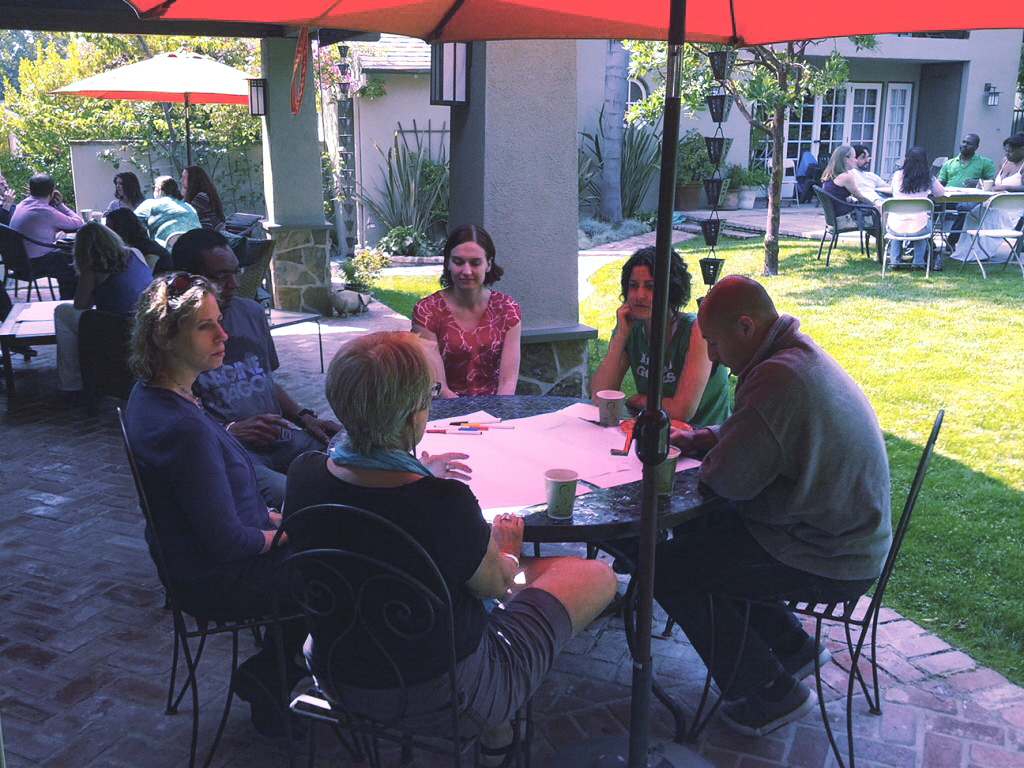Across community organizing, organization management, community development and change work in general, we are experiencing strong movement toward more collaborative and relational practices. The heart of such practices is dialogue. Some call me a dialogue artist for the way conversations I lead get to the heart of the matter.
During my study of collaborative organizational and psychotherapeutic practices I discovered the writings of Mikhail Bakhtin. His work challenged and energized me and has influenced all I have done since. His quote on my home page is part of a larger one. Here is some more:
The single adequate form for verbally expressing authentic human life is the open-ended dialogue. Life by its very nature is dialogic. To live means to participate in dialogue: to ask questions, to heed, to respond, to agree . . .
This dialogical process enlivens and enriches our unspoken interactions as well.
While I was discovering Bakhtin, I was in my first few years of tai chi practice. Finely attuned to others and to the environment, tai chi is a highly dialogic practice – an expression in movement of ideas like Bakhtin’s. Another profound influence on all that I do, tai chi complemented Bakhtin and rounds out the body of knowledge from which I work.
My work gives me ongoing opportunities to lead, shape and participate in dialogues with one person, ten, seventy, or a hundred. These dialogues include people of many cultures, classes, ethnicities, sexual orientations and genders. While they have many intentions and directions, these dialogues always result in shaping or invigorating change.
I’m certainly not the only psychotherapist coming to large systems work. But I know that my background offers a depth and breadth that strengthens the possibilities of succeeding.

